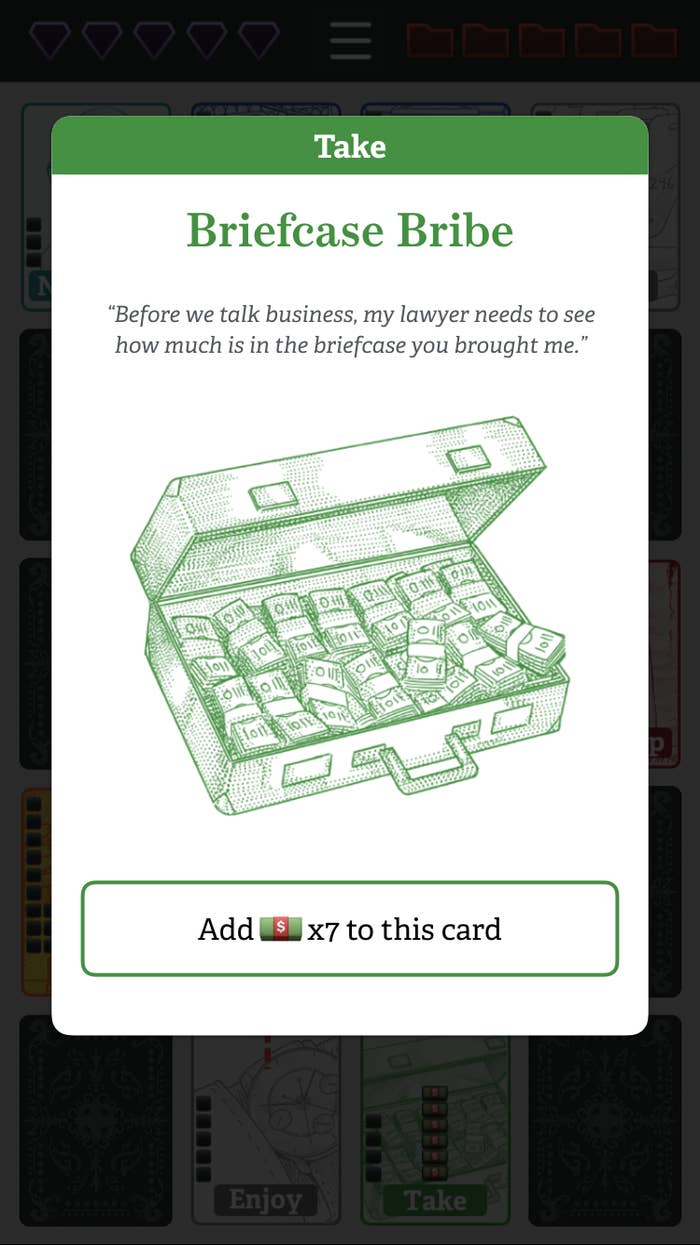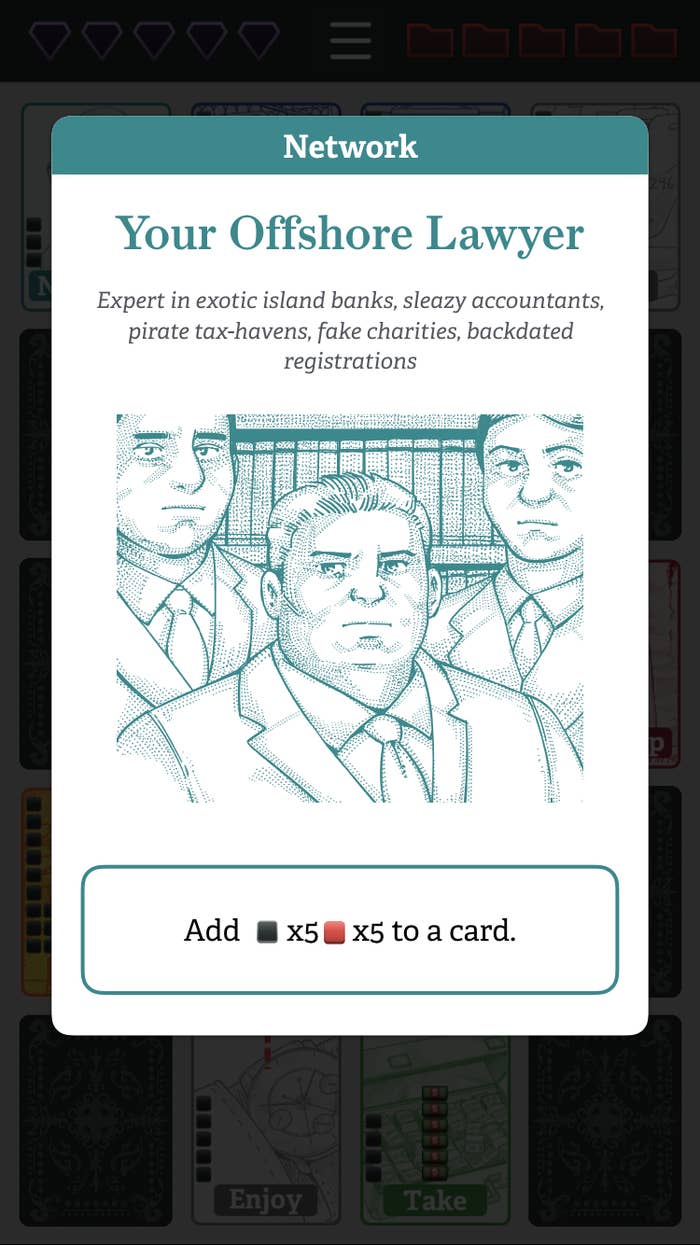
Ever dreamed about funneling millions out of the country you’re supposed to be ruling? Think you’d be good at it? Well, try your hand at a game called Kleptocrat.
The Mintz Group, a private eye firm, drew on its experience investigating corrupt officials around the globe to create a free app that allows users to experience the thrill of evading investigators. “We realized we kept seeing the same patterns over and over again, almost like characters in a drama,” said Jim Mintz, the company’s founder and CEO.
You start by using a “take” card to generate cash. Then use the “move” and “hide” cards to transfer money to an “enjoy” to buy fancy watches, safaris, and mansions. There are also “network” cards for people who can help you along the way, such as your Swiss banker.
Meanwhile, the game’s “investigator” randomly moves throughout the board trying to find suspicious activity, designated by bundles of cash and red boxes. You have to be careful — really careful — if you want to enjoy your hard-earned millions and avoid the slammer. Here are five lessons learned from real experiences documented in the app.
1. Getting the money is the easy part. Government officials have all sorts of ways to gin up cash. Some of the examples in the app? Protection rackets for illegal activity, kickback schemes, and the always reliable briefcase-full-of-cash bribe.
2. Your network is useful, but also a potential liability. You’re smart enough to buy your mansion in London or Paris through a shell company so no one will know it’s you who really owns it. But now you want to decorate it to your — or your spouse’s — taste, so you hire the most sought-after interior designer. But watch it! “We found that the corrupt official wanted to come out of the closet and meet with one person, either the architect or the interior designer,” Mintz said. “It’s because his wife or girlfriend wants a specific type of marble in the bathroom and they want to make sure it’s done right.” So that person knows who really owns the property, and that can get you busted.
3. Don’t try to move your money too quickly. It turns out that it’s hard to transfer large sums of money around the globe. One novel way the app presents: shipping shrink-wrapped $100s to Brazil in a diplomatic pouch. Casino chips are also useful because a chain can have locations around the globe — but tightening regulations might make it necessary to show your passport to convert the funds.
4. There are a lot of places to hide the cash. Monaco, Liechtenstein, and Trolzestrasse (a street in Zurich) are included as potential landing spots to stash cash. The rise of cryptocurrency has provided another viable option — but even though users are anonymized, the blockchain keeps a record of every transaction in and out. If you’re looking to move high-priced art a “freeport” might be a good place to stash it. These storage locations often offer tax-free storage next to an airport or major road.

5. Enjoying those millions can open up even more risk. Even somewhat subtle ways of spending the money, such as buying a Lange & Sohne watch, can pique the interest of investigators — or Twitter-obsessed people who watch (pun intended) what watches their leaders are wearing. “There are different kinds of investigations going on these days,” Mintz said about the amateur sleuths. They don’t just keep track of numbers, but some “are fanatical aviation nerds looking at and recording tail numbers around the world.”
In the end, the patterns of corruption The Mintz Group analyzed also helped them become more efficient investigators. For instance, the data pointed them away from accountants and towards another part of a kleptocratic network.
“We almost never came across accountants, but we kept seeing lawyers upon lawyers upon lawyers,” Jim Mintz said. “A lot of people with secrets to hide don’t seem to trust accountants; they trust the lawyers.”
